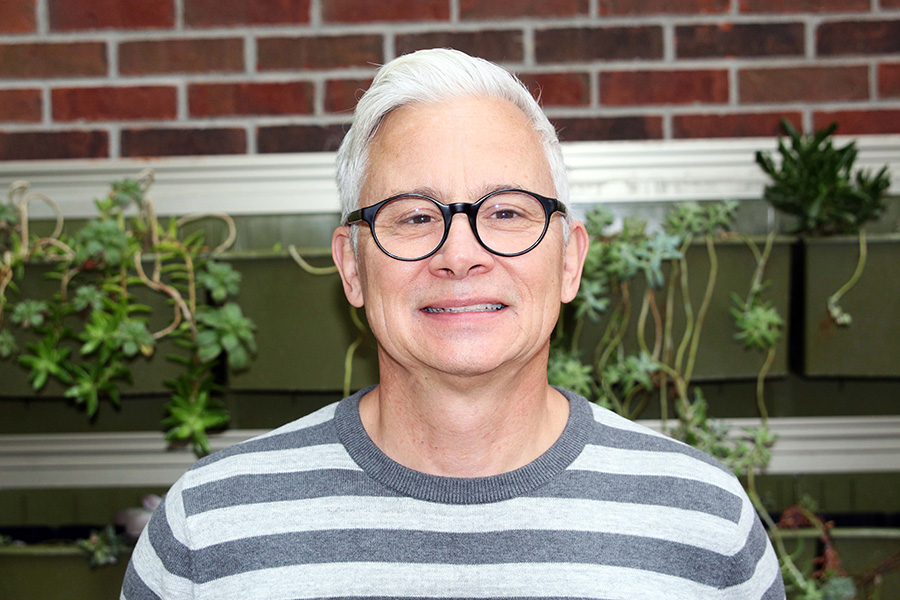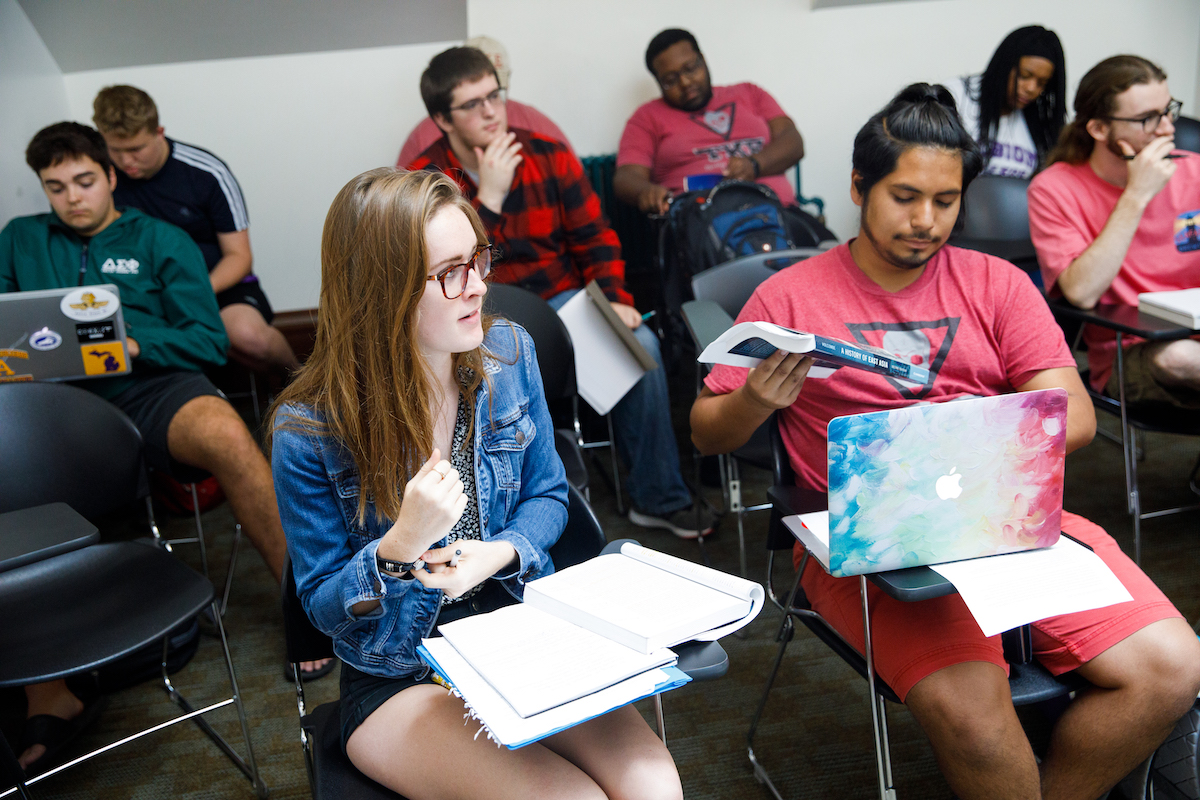Faculty Profile: Kyle Shanton
Related Programs
Related Posts
Connect With Us
The professor of education has dedicated his life to bilingual education and literacy.
March 14, 2022

Dr. Kyle Shanton explains that literacy isn’t just about reading, but includes “speaking and listening, reading and writing, viewing and visualizing.”
He adds, “Identity and culture and ethnicity are always intersected in literacy.”
This understanding of literacy, where language and culture are connected to how students interpret the world, is why Shanton is so invested in bilingual education.
Shanton didn’t always want to be a teacher. “I first swore I would never be a teacher,” he says. “Teachers in high school and my parents and people in the churches we attended were telling me, ‘Oh, you would be a really good teacher.’ And I was almost a rebel about it. I was like, ‘I am never going to be a teacher.’ Famous last words. Now I’m teaching people who want to be teachers. Never say never, right?”
Shanton changed his mind about teaching when he took a bilingual education class as an undergraduate at the University of Iowa. He had six years of language education in Spanish and French in junior high and high school, and was delighted to discover a purpose for being bilingual beyond simply translating. This classroom approach is helpful for students who may speak Spanish or be bilingual, but it is also beneficial for students who speak only English, Shanton says, because exposure to a second language is good for development.
He has been passionate about teaching bilingual literacy ever since. Shanton was an elementary school teacher for a while, and during his time in Arizona he worked with Chicano families and Indigenous peoples, strengthening his belief in the value of bilingual education. Shanton went on to get a master’s degree and a doctorate from the University of Arizona. A member of Albion’s faculty for 15 years, he has been instrumental in creating the College’s teaching English as a second language (TESL) minor program.
Shanton’s commitment to bilingual literacy extends into his personal life. “I made a decision that when I had children I would only speak Spanish to them,” he says. “I have two children, a daughter who’s a sophomore in college and a son who’s a ninth grader. I have never spoken English directly to them, ever. They hear me speak English when we’re in groups of people who don’t speak Spanish, but I speak only Spanish to them. They are bilingual from birth.”
Shanton served in Costa Rica as a Fulbright scholar, and his children lived there with him, serving as cultural ambassadors for the U.S. and becoming further immersed in the Spanish language and Latinx culture.
The Albion Experience
One of the things Shanton values about teaching at Albion, he says, is the close connection with schools. Education students at Albion get the opportunity to work directly in local schools to practice their teaching.
When working with student teachers, he says, “I don’t check off if they do it exactly the same way I could do it. They can’t do it exactly that way, because I’ve been teaching 35 years and they haven’t.” Instead, he encourages students working on a teaching technique to “apply it, or enact it, and then take a step back to look at what they and the learners did and think about whether they will change it. They often say, ‘It makes me feel like I’m really going to be a teacher when I do that.’”
That’s another thing Shanton appreciates about Albion: the freedom to use a variety of assessment techniques. “I deeply appreciate that there is a value of being able to assess in different ways,” he says.
While he still assigns typical essays, and believes in their value, he enjoys using other forms of assessment as well. “I can have these one-on-one conferences with students in all of my courses, where I can sit down and look really closely at what their behavior was like in the school,” Shanton says.
He is able to do that through video recordings and observers’ notes, so he can get a fuller picture of a student’s performance as a teacher. “This method also provides opportunities for beginning teachers to check their responses to school-age students’ language use,” Shanton says. “I explore with them, when relevant, ways to honor the use of more than one language.”
Even when his students write essays, Shanton likes to meet with them and go through their writing together, to help them better communicate their ideas.
When he’s not teaching, Shanton can often be found walking his dog on and around campus. “I walk him five times a day,” he says. “He loves it and it’s good for me, too.”
Shanton enjoys spending time outside with his family as well. “In the summer and fall, my son and daughter and I love to sit around the fire pit in our backyard with friends and eat and tell stories,” he says.
Shanton has committed himself to advocating for bilingual literacy for his children, his students and the students they will go on to teach.
